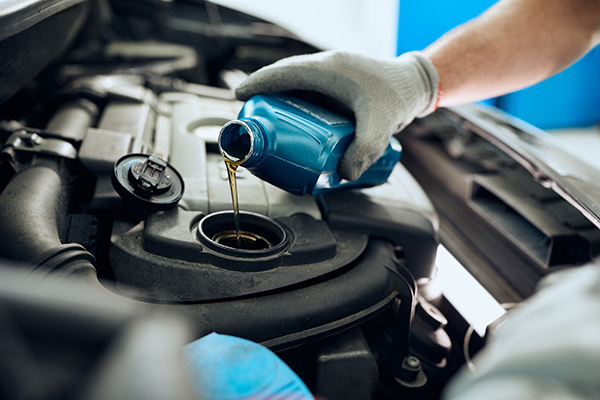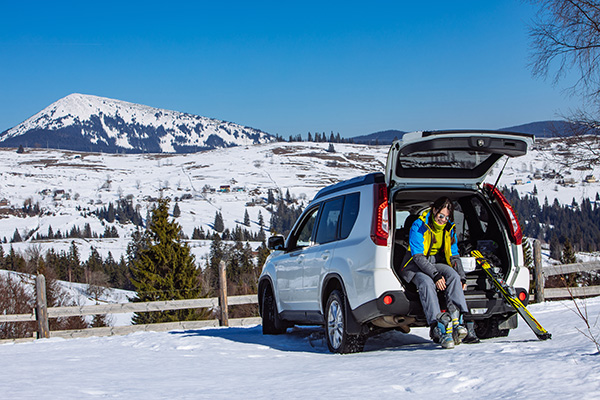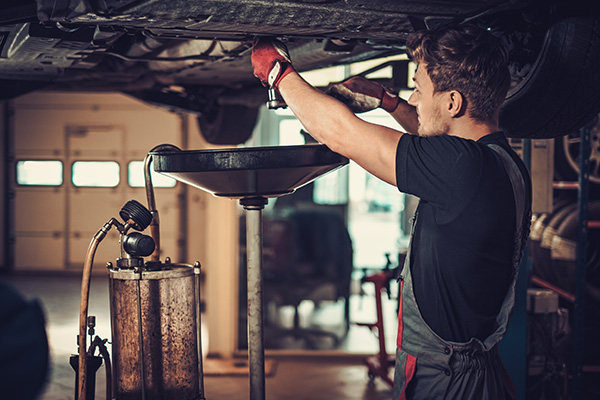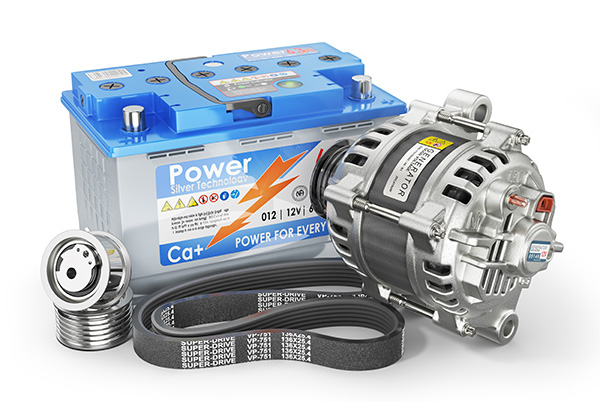Posted on 2/28/2025

Getting your oil changed is already part of your regular car maintenance routine, so why not take care of a few other services while you're at it? Since your vehicle is already in the shop, it makes sense to handle some essential maintenance tasks that can keep your car running smoothly. By combining services, you can save time, prevent future problems, and extend the life of your vehicle. Here are six maintenance checks worth adding to your next oil change. 1. Tire Rotation and Pressure Check Tires wear down at different rates depending on their position. Front tires, for example, tend to wear faster because they handle most of the steering and braking force. Rotating your tires regularly ensures even tread wear, which improves handling and extends their lifespan. During an oil change, it’s also a good idea to check tire pressure. Underinflated or overinflated tires can affect fuel efficiency and traction, leading to uneven wear or even blowouts. Maintain ... read more
Posted on 1/31/2025

Modern vehicles are evolving faster than ever, with technology playing a pivotal role in improving safety, convenience, and the overall driving experience. Advanced Driver Assistance Systems (ADAS) have become a cornerstone of these advancements, designed to help drivers stay alert, avoid accidents, and make driving less stressful. But what exactly are these features, and how do they work? What Is ADAS ADAS, or Advanced Driver Assistance Systems, refers to a suite of technologies designed to improve vehicle safety and support drivers during various aspects of driving. These systems rely on a combination of sensors, cameras, radar, and artificial intelligence to monitor the surrounding environment and provide real-time feedback to the driver. From preventing collisions to making parking effortless, ADAS is no longer just a luxury—it’s becoming a standard feature in many modern vehicles, providing an additional layer of security for both drivers and pedest ... read more
Posted on 12/20/2024

Planning a ski trip in Colorado is always exciting, but before you hit the slopes, it’s important to make sure your car is ready for the journey. Ft. Collins, CO, is the perfect launching point for many of the state’s breathtaking ski resorts, but winter roads can be unpredictable. Preparing your car not only ensures a safe trip but also lets you focus on enjoying the powder instead of worrying about roadside troubles. So, what steps should you take to gear up your vehicle for an epic winter adventure? Inspect Your Tires for Winter Conditions Your tires are your first line of defense on icy roads. Check the tread depth to ensure they’re up for the challenge. Worn-out tires won’t provide the grip you need on snowy and slushy surfaces. If you haven’t already, consider swapping them out for winter tires. These are designed to perform better in cold temperatures and offer superior traction on snow and ice. Don’t forget to check your ti ... read more
Posted on 11/29/2024

Neglecting an oil change might not seem like a big deal at first, but it’s one of those small things that can lead to significant problems over time. Your car's engine relies on clean, fresh oil to function efficiently, and skipping this routine maintenance can have more consequences than you might expect. So, is missing an oil change really that harmful? Why Regular Oil Changes Matter Your engine is made up of moving parts that generate heat and friction as they work together to power your vehicle. Engine oil acts as both a lubricant and a coolant, reducing wear and keeping everything running. Over time, however, oil breaks down, loses effectiveness and becomes contaminated with dirt and debris. When this happens, your engine is no longer properly protected. The lack of clean oil can cause increased friction and overheating and eventually lead to serious engine damage. Regular oil changes ensure that your engine stays in top shape by replacing degraded oi ... read more
Posted on 10/31/2024

Winter can be a challenging time for drivers, and one common issue that frustrates many during colder months is the sudden failure of their car batteries. You’ve probably heard that cold weather isn’t great for your car, but have you ever wondered why exactly your battery struggles when temperatures drop? Let’s explore how cold temperatures affect car batteries and what you can do to prevent those dreaded morning surprises when your car refuses to start. Why Cold Weather Is Hard on Batteries Car batteries rely on chemical reactions to produce electrical energy. Inside the battery, a chemical process occurs between the lead plates and sulfuric acid, creating a charge that powers your vehicle. But here’s the catch: cold weather slows down these chemical reactions. When the temperature dips, your battery becomes less efficient at generating the power it needs to turn over your engine. In freezing conditions, a car battery can lose up to 50% of i ... read more